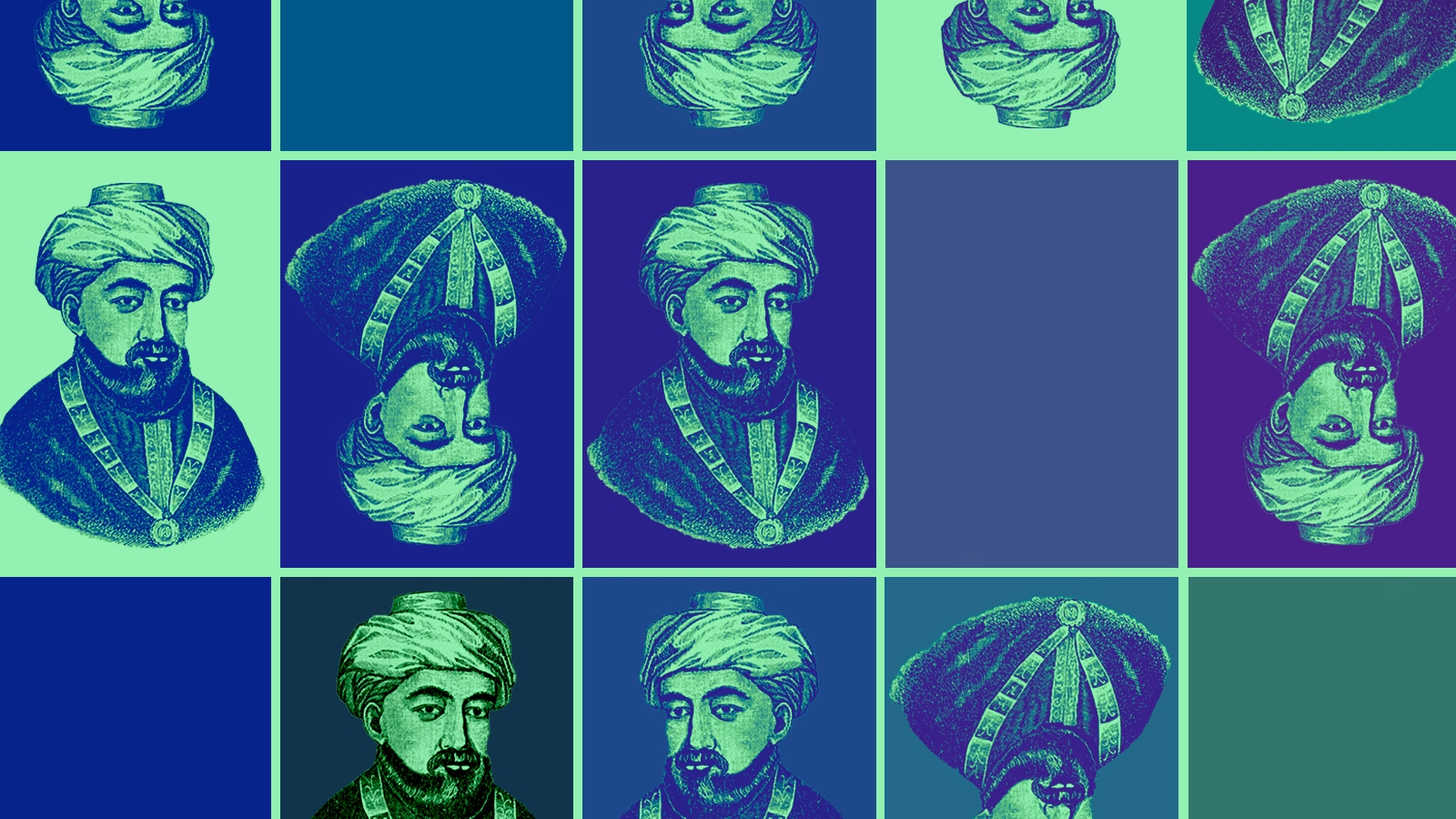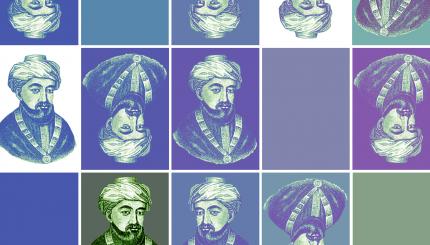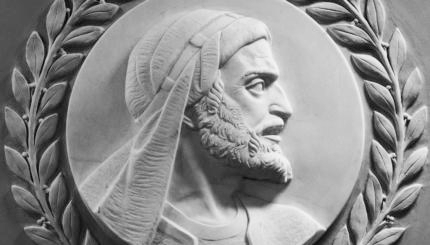Considered by many to be the most influential Jewish thinker of all time, Moses Maimonides inspired passionate followers and equally passionate critics and remains to this day a subject of endless fascination. But apart from the legal and philosophical writings for which he is best known, Maimonides authored a number of medical works that exercised their own influence in his and later times.
We do not know exactly how or where Maimonides acquired his medical training, though it seems he had an interest in medicine even as a young man. Gerrit Bos, the translator of his medical works from Arabic into English, concludes that he may have studied medical theory early on and probably began a formal medical apprenticeship after he left the Iberian peninsula for North Africa, finally turning to professional practice after arriving in Egypt. Not until the death at sea of his brother David, and the consequent need to supplement his income, did medicine become a full-time profession. Maimonides became a physician to Al-Qadi Al-Fadil, the top official of the Egyptian sultan Saladin, and then later to Saladin’s son Al-Malik Al-Afdal.
Medieval medicine was based on the philosophical and scientific legacy of ancient Greece and refined by centuries of Muslim thinkers. The authority most often mentioned in Maimonides’ medical writings was Galen, the second-century Greek physician whose medicine was based on the theory of the humors: blood, phlegm, yellow or red bile, and black bile. Medical therapies of the time were based on the idea that an imbalance of the humors could be rectified by manipulating six external factors: air, food and drink, movement and rest, sleeping and waking, excretion and retention as well as the emotions. Aside from long-term dietary regimens, other therapeutic options included the physical removal of excess humors from the body— especially by bloodletting, but also by inducing vomiting or diarrhea. Drugs, too, were an important part of therapy.
All this theory, as well as Maimonides’ own professional experience, is fully on display in his consilia — short works of medical advice focusing on particular conditions, including hemorrhoids, asthma, sex, and more. Maimonides composed these for his wealthy Muslim clientele and they provide fascinating details about his patients’ lives and complaints, as well as his own personal wellness habits. All were translated into Hebrew (and sometimes Latin), copied, studied, and used by later Jewish and sometimes Christian physicians.

Help us keep Jewish knowledge accessible to millions of people around the world.
Your donation to My Jewish Learning fuels endless journeys of Jewish discovery. With your help, My Jewish Learning can continue to provide nonstop opportunities for learning, connection and growth.
In On Asthma, he offers several bits of advice drawn from his own experience and daily practice:
I have found that the best thing to do is to have the stomach occupied with light tasty foods which are easy to digest. Sometimes I drink soup [made] from young roosters, when it is available, and then go to sleep; and sometimes I boil five or six eggs and eat their yolks with some cinnamon and salt sprinkled on them. Sometimes I eat some pistachio nuts and raisins without their seeds, or raisins and almonds with fanid [a sugar candy], and drink a beverage of sugar or honey—whichever is available. During the winter I take a glass of wine when it is cold. (trans. Gerrit Bos)
Aside from food preferences, we see Maimonides taking Galen’s advice about when to frequent the bathhouse:
Galen said the following, and these are his very words: “You should know that nothing compares with sleep immediately after a bath … Since I have come to know about this, I have not bathed except at the time of sunset, and I go directly from the bathhouse to the deep and beneficial sleep of the night. I was very happy with its effect [on me]. (trans. Gerrit Bos)
We even visit Maimonides in the kitchen. Here is his recipe for a meat omelet, taken from another consilium, On Coitus, and meant to increase sexual potency:
I have composed an omelet myself which is easy to prepare and tastes delicious. The one to whom I prescribed it told [me] that he found it very effective. This is its composition: Take four onions, roast them in an oven until they are done; remove their outer peel and pound them well. Likewise, take half a raṭl of meat that was roasted and broiled in its own broth until it was well done. Pound the meat and mix it with the roasted onions together with the remaining broth. Break twenty chicken eggs [and put] their yolk on it.
Mix all this and add to this such a quantity of the aforementioned spices that their flavor can be clearly noticed, as well as some salt, and if the salt is from the skink (Scincus officinalis), it is the best. Roast this in sesame oil or clarified butter. One can also make another omelet that is exactly the same [except that it is made] with roasted carrots instead of the onions. One can also make it with both carrots and onions as I have described. (trans. Gerrit Bos)
Possibly the last work Maimonides completed in his lifetime was Fusul Musa (“The Chapters of Moses”), a major work and the most popular of his medical texts among Jews during the medieval period. It is a 25-part anthology of aphorisms on all aspects of medicine, drawn from Hippocrates and Galen, among others, either as a direct quotation, an edited version of the original, or as a paraphrase interspersed with Maimonides’ own observations, each of which is introduced by the words, “Says Moses.”
Even before Maimonides became a practicing physician, he integrated medical theory into some of his non-medical works. In his lengthy Arabic introduction to the Mishnah’s tractate of Avot, referred to as the Eight Chapters, he compares afflictions of the body to afflictions of the soul and warns against extremes in either realm. Extremes of character are to be avoided, he writes, for if they “incline toward either extreme, . . . one’s soul becomes diseased. In such a contingency, it is proper for one to resort to a cure, exactly as he would were his body suffering from an illness.” (trans. Joseph I. Gorfinkle)
Maimonides understood Jewish law a guide for following “the path of moderation, in accordance with the dictates of nature, eating, drinking, enjoying legitimate sexual intercourse, all in moderation, and living among people in honesty and uprightness, but not dwelling in the wilderness, or in the mountains, or clothing oneself in garments of hair and wool, or afflicting the body.” The Torah’s commandments aim to keep us on this middle path. Any restrictions or ascetic practices that go beyond the Torah’s commands should be avoided.
Not only does Jewish law serve to heal the soul, but it could also heal the body. Maimonides distilled his medical knowledge into a single chapter in the Mishneh Torah, where he offers a health regimen for every Jew, presented as legal rulings. Some of his statements are still highly pertinent: “One should never eat unless hungry, or drink unless thirsty … One should not eat to the point of filling the belly, but should leave off at about a quarter short of fullness.” Maimonides warns against consuming old salty cheeses, salty fish, and other unhealthy foods, while encouraging an eight-hour sleep every night, awaking at dawn, and exercising before breakfast.
While medieval medicine suffered from a completely erroneous theoretical framework, its practice also took into account the accumulated wisdom of centuries. And Maimonides, like most doctors, both learned from his teachers and also, over a lifetime, developed his own understanding of medicine — and of its limits. One could do worse than heed his medical advice today.



